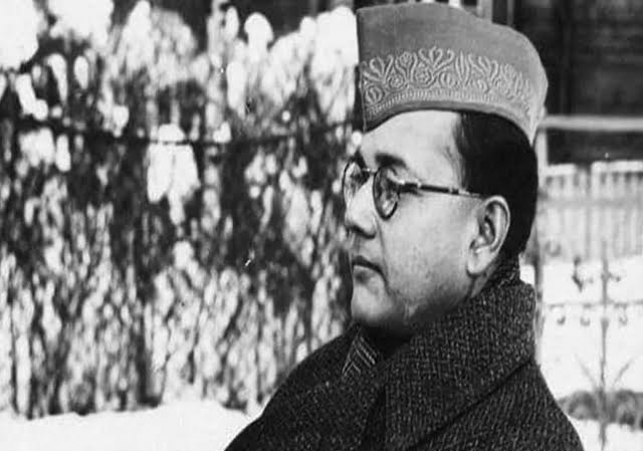

As the country marks the one hundred and twenty-fifth anniversary of Netaji Subhas Chandra Bose's birth, the Forward Bloc, which began as a faction of the Indian National Congress under his leadership in 1939, struggles for political survival, suffering from financial disaster, numerous splits, and a lack of administration.
Using Netaji's popularity, the organisation established a post-Independence electoral presence in states like Tamil Nadu, Andhra Pradesh, Kerala, and Assam, with West Bengal serving as its main stronghold. However, eight years later, the occasion is now restricted to only a few pockets of the country, with no MP or MLA in its kitty.
Although the present management is considering a revitalization strategy, a lack of resources and the Forward Bloc's role as second fiddle to the CPI(M) with no independent identity of its own is proving to be the most significant hurdle.
"It is true that we are in the midst of a major catastrophe. After independence, there was a time when we had MLAs in Maharashtra, Bihar, the southern Indian states, and West Bengal. We no longer have a single Member of Parliament or Member of the Legislative Assembly representing our party. The membership count, too, has dwindled over the years. We are now discussing a revival strategy,” AIFB normal secretary Debabrata Biswas informed PTI.
Aside from Netaji, the event counts a number of staunch leaders as members, including H V Kamath, Hemanta Basu, RS Ruiker, S B Yagee, and SS Kavishar, amongst others.
The Forward Bloc's demise, according to Biswas, was caused by a series of divisions and the exodus of steadfast leaders to various events.
"After independence, we had numerous stalwart leaders who not only helped the cause grow, but also provided leadership in the absence of Netaji." However, following Netaji's departure, the glue that held everyone together vanished. Beginning in 1948, the event saw a number of divisions, first between Ruikar and the Yangee group, then amongst various states.
"In addition, numerous Forward Bloc officials openly favoured unification with the Congress, with some later joining the Congress or other political organisations." "The deaths of key leaders left a significant hole that we were unable to fill," he explained.
According to history, after quitting as president of the Congress in April 1939, Bose decided to build a bloc during the election to unite Left and socialist-minded leaders under one platform.
Bose was elected as the organization's first president, while H V Kamath was elected as the organization's first normal secretary.
Later, the event was called the All India Forward Bloc (AIFB), a socialist political organisation.
Over time, the AIFB became a part of the CPI(M)-led Left Front, losing its apolitical stance.
Its national vote percentage fell from 0.35 percent in 2004 to 0.05 percent in the 2019 Lok Sabha elections.
Bengal saw a more dramatic drop, from 4.80% in 2011 to 0.53 percent in the 2021 meeting polls.
Currently, the AIFB has only a few panchayat members in West Bengal's rural areas.
Failure to groom next-generation leaders and attract youth to the organisation are also major factors in the organization's current existential crisis, according to the event management.
We failed to groom young cadres after the death or exodus of veteran leaders. Despite the youth's admiration and curiosity about Netaji's life and struggle, we were unable to lure them into the party fold. Furthermore, a part of the population has been alienated by the debate over whether to adopt Subhaswad (Netaji's ideology) or Left ideology. He was undoubtedly a Leftist, but he taught the Samyavad philosophy — the notion of synthesis or equality," Biswas explained.
Lack of financial assistance, according to AIFB state secretary Naren Chatterjee, has exacerbated the problems.
If you want to get into politics in today's India, you'll need money. Our finances were severely harmed after the Left Front lost power in 2011. We now administer the party with the help of a levy collected from members, party subscriptions, and donations from supporters. That, however, is insufficient. He stated, "If we want to strengthen the party, we need money."
Biswas stated that discussions are underway for an organisational revamp, with a focus on Netaji's inclusion and Samyavad policies.
"The AIFB is regarded as a Left Front partner. The goal of the talks is to reform the party's constitution and policies to reflect Netaji's vision. There will be Leftist unity, but we will not be united.
Members of Netaji's family, on the other hand, believe that reviving the Forward Bloc in the current political climate, in which the CPI(M) is trying to stay relevant, could be a challenging task.
"Over time, the Forward Bloc has become a second fiddle to the CPI" (M). Things are getting difficult for the Forward Bloc now that the CPI (M) is in the red. "The current Forward Bloc is a modified version of what Netaji had founded," said Chandra Kumar Bose, Netaji's grandnephew who was involved in the event for a decade.
According to Chandra Kumar Bose, Netaji was a proponent of a Left ideology that was anchored in ground realities within the country, and he did not simply follow other communist countries.
The Forward Bloc of the post-independence period, according to Sugata Bose, another grandnephew of Netaji and a prominent historian, has little to do with Netaji and his views.
"After leaving the Forward Bloc, he founded the Indian National Army (INA) and fought for India's freedom.
It's a fallacy to conflate the fringe political party with Netaji's 1939 formation. Bose, who is also the chairman of the Netaji Research Bureau, stated, "His values are above politics."
Political analysts believe the Forward Bloc is a dead force in West Bengal, and that resurrecting it will be difficult.
"In West Bengal, most Forward Bloc leaders joined the TMC after 2011." The same thing happened elsewhere, just as it failed to keep its flock together in West Bengal. Its resurgence would be beneficial.